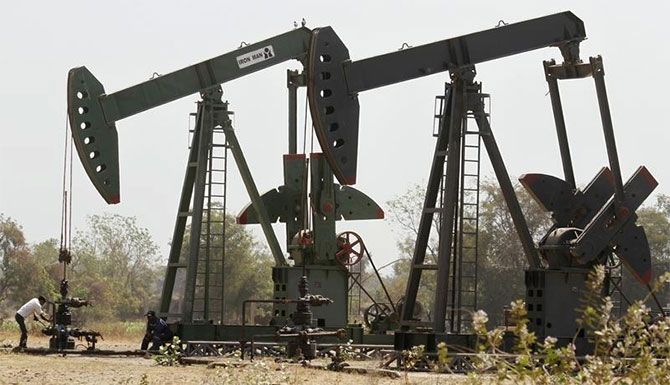India is the third largest consumer of petroleum products, after the US and China.

The second round of bidding for discovered small and marginal fields (DSF) in the petroleum sector is set to take place in October.
“We’re eyeing start-ups and small national and international companies. About 60 blocks will be on offer for the second round,” said an official.
According to sources, the Directorate General of Hydrocarbons (DGH) has shortlisted these blocks. These are now before the ministry of petroleum and natural gas for clearance.
India is the third largest consumer of petroleum products, after the US and China.
The country’s share of global demand is expected to grow 5.5 per cent to nine per cent by 2035.
The DSF rounds and the Open Acreage Licensing (OAL) policy round are considered vital for reducing of import, in the schedule approved by the ministry.
In the first round of DSF, blocks were awarded to 30 companies - 23 onshore and seven offshore ones.
“The success of DSF Bid Round 2016 in the face of global economic slowdown and low oil prices manifests the benefits of the new E&P (exploration and production) regime for investors,” said a DGH presentation at the recent World Petroleum Congress in Istanbul.
India has 26 sedimentary basins over 3.14 million sq km. Crude oil and natural gas are being produced in seven basins.
In the new rounds, 2.7 mn sq km will be on offer, comprising 1.5 mn sq km of onshore and 1.2 mn sq km of offshore areas.
In the new Hydrocarbon Exploration Licensing Policy, these are to be offered on a revenue-sharing model, providing pricing and marketing freedom to operators.
On June 28, the government had launched a National Data Repository (NDR) for investors keen on the OAL round. In the NDR, sedimentary basins are divided into zones, with corresponding data.
“We’re getting a lot of demand for NDR with the launch of OAL. A lot of national and international players are keen. NDR is based on seismic and well data, and investors can identify areas with potential through this,” said another official.
Investors will also have the option to go for a petroleum operations contract or reconnaissance contract.
The latter will be valid for three years and the former will allow eight years for exploration and 20 years for development and production.
There will also be an option to migrate from a reconnaissance contract to a petroleum operations contract after three years.
Photograph: Amit Dave/Reuters












 © 2025
© 2025